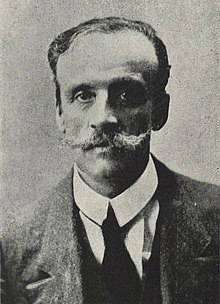Civilized men are more discourteous than
savages because they know they can be impolite without having their skulls
split, as a general thing.—The Tower of the Elephant
A Barbarian wandering hither and yon and laying waste
in a Mythic Age?
What does such a character have to do with Western
fiction.
Stay with me as I plead my case, a poor one perhaps
borne of predilection, but there are a few points of evidence that may give
pause to the doubters.
First, I refer only to the Conan of Robert E. Howards
pen, and not to any of the authors that have attempted to follow in his
footsteps, be it a character named Conan, Kane, Brak, what have you.
Secondly, I refer ONLY to Conan and not to the “sword
and sorcery” genre in general, aka “Heroic Fantasy.”
Again, all of my meager arguments refer to the Conan
of Howard, not the conan [lower case] of de Camp, Carter, Nyberg, Anderson,
Jordan et al.
All other sword and sorcery and heroic fantasy leaves
me unmoved.
Such a thing has always puzzled me.
Why is it that this single character, more specifically
this single character in the hands of a single man click whereas the others
strike me as carboard pawns?
To my mind this is no mere wish-fulfillment to shoehorn
an icon of one genre to be more in alignment with one I adore—The Western.
It may be a small matter, but one that is not small to
the author.
Many claim the fictional hero Jack Reacher of the Lee
Child novels -and now those of his brother, Andrew Grant—is a “Western” hero.
This is thanks to a New Yorker piece by Malcolm
Gladwell [not known for pinpoint research] making claims that “Oh yeah, Western
hero thru and thru.”
I quote from Gladwell’s piece:
“The Reacher books are Westerns: they are about the
man of honor coming to the lawless frontier town in order to impose a rough
sort of justice.”
And…
“Our contemporary fantasy is about lawlessness:
about what would happen if the institutions of civility melted away and all we
were left with was a hard-muscled, rangy guy who could do all the necessary
calculations in his head to insure that the bad guy got what he had coming.
That’s why there are rarely any police in Reacher novels—or judges or courts or
lawyers or any discussion or consideration of the law."
Sounds like a pretty good justification, right?
The trouble is, Lee Child, the creator himself says,
he holds no fondness for the Western. It is a genre he does not enjoy.
I don’t begrudge Gladwell for wanting to claim Reacher
for the Western, but, maybe, just maybe it matters what the author himself
intended.
Which brings me back to Conan.
Jack Reacher, on the surface at least, has seemingly
more in common with the Western hero than a mythic Barbarian.
Let us allow Conan’s creator to have a say in the
matter.
Regarding the character of Conan, “[He] simply grew
up in my mind a few years ago when I was stopping in little border town in the
lower Rio Grande… He simply stepped full grown out of oblivion and set me at
work recording the saga of his adventures… Some mechanism in my subconscious
took the dominant characteristics of various prize fighters, gunmen,
bootleggers, oil field bullies, gamblers, and honest workmen I have come in
contact with, and combining them all, producing the amalgamation I called Conan
the Cimmerian.”
And there we have the key, to me at least, as to why I
felt this Western affinity to the character of the original Conan.
Howard, a West Texan by birth, lineage and experience living
in a day when his Conan models walked among us, created a living breathing bold
character from living breathing swaggering actual gents.
Howard created the character and wrote from a
real-life Western sensibility, whereas his followers are writing imitations of characters
they encountered in books in false authorial worlds where inspiration is
literary rather than gritty and actually human.
Conan in his wanderings strikes me as a forerunner to the
laconic wanderers of the Spaghetti west.
Not cynical but pragmatic.
Not amoral but brutal.
Alive in a mythic past, but nevertheless alive.
One need not agree with my estimation of Conan as a
Westerner, I merely offer as food for thought and as mystery solved for why one
single character in an entire genre works for me and all other false heroes
fail.
Conan was borne of real men.
That reality shows.









